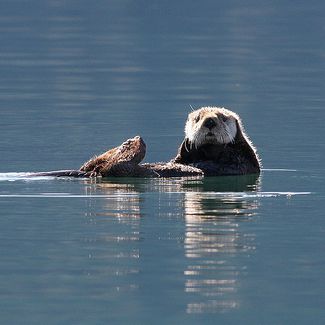
Seward Coal Case Reaches Settlement
Trustees for Alaska and the Sierra Club Environmental Law Program entered a settlement agreement this month on behalf of Alaska Community Action on Toxics and the Alaska Chapter of the Sierra Club. The agreement resolves a nearly six-year-old lawsuit brought against Aurora Energy Services, LLC and the Alaska Railroad Corporation under the Clean Water Act to address coal spilled from the facility in Seward into Resurrection Bay, the gateway to Kenai Fjords National Park.
“This outcome has been so long in the making,” said Russ Maddox, longtime Seward resident and Sierra Club volunteer. “We filed the original suit in 2009. As recently as December 2014, the companies’ own dive report found a layer of coal on the seafloor beneath the conveyor so deep that their core sample couldn’t reach the bottom. First the companies denied there was a problem, then they wasted millions of dollars fighting a losing court battle, now finally they’re beginning to take responsibility for their actions. More work needs to be done to fully address the problem, but at least the companies are beginning to be held accountable.”
Following a court ruling, the facility has made some improvements to its operation and is now in the process of obtaining a permit. In addition to facility improvements, the settlement requires the companies to fund conservation projects in the Resurrection Bay watershed carried out by the Kachemak Heritage Land Trust.
Trustees for Alaska Senior Staff Attorney, Brian Litmans, who filed the complaint in 2009, said “The Alaska Railroad and Aurora Energy Services chose to fight in court instead of acknowledging that coal was spilling into pristine Resurrection Bay. We are pleased to see the Facility finally address its pollution problem and comply with the Clean Water Act by getting a permit that will require the Facility to take measures to reduce and minimize coal falling into the Bay.”
“This is a big win for the people of the Seward community!” said Pamela Miller, executive director of Alaska Community Action on Toxics. “However, our work is not done. The permitting process for the facility is still ongoing, and we are committed to working with state and federal regulators to make sure the final permit includes meaningful protections for Resurrection Bay and the Seward community.”


